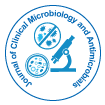

Perspective - (2023)Volume 7, Issue 3
Viruses, often regarded as the culprits behind a myriad of diseases, may seem like adversaries to our health. However, beneath their pathogenic nature lies a crucial role in disease diagnosis and treatment.
Viral diagnosis
One of the most fundamental roles viruses play in healthcare is their use as diagnostic tools. Viral detection methods are central in identifying and characterizing diseases, aiding in early intervention and treatment decisions.
Diagnostic tests: Viral infections are diagnosed through a variety of tests, including Polymerase Chain Reaction (PCR) assays, Enzyme-Linked Immunosorbent Assays (ELISA), and viral cultures. These tests allow healthcare professionals to identify the specific virus responsible for an illness quickly.
Early detection: Viral diagnostic tests can detect infections in their early stages, enabling prompt medical intervention. Early diagnosis is particularly critical in cases where the virus may cause severe complications if left untreated, such as Human Immunodeficiency Virus (HIV) or hepatitis.
Monitoring disease progression: Viral load tests, which measure the quantity of virus in a patient's blood, are essential for monitoring the progression of viral infections and assessing the effectiveness of antiviral treatments.
Outbreak control: In cases of contagious diseases, rapid identification of the virus is vital for implementing control measures, isolating infected individuals, and preventing further spread.
Virus-based therapies
Beyond diagnosis, viruses have been harnessed as powerful allies in the development of innovative therapies. Two prominent examples of this are oncolytic viruses and viral vectors for gene therapy.
Oncolytic viruses: These are viruses that selectively infect and destroy cancer cells while leaving healthy cells unharmed.
Oncolytic viruses such as the herpes simplex virus and adenovirus have shown promise in clinical trials as a novel approach to cancer treatment. They work by targeting and replicating within tumor cells, ultimately causing their destruction.
Viral vectors in gene therapy: Viruses can be engineered to deliver therapeutic genes to specific cells within the body. These modified viruses, known as viral vectors, are used in gene therapy to treat a wide range of genetic and acquired diseases. Viral vectors have shown remarkable potential in treating conditions like inherited genetic disorders, immune deficiencies, and even certain types of blindness.
Vaccine development
Vaccines have been instrumental in preventing countless diseases, and viruses have played a central role in their development.
Immune response study: Researchers use harmless or weakened versions of viruses to study the human immune response. Understanding how the immune system reacts to these viral components aids in the development of effective vaccines.
Vaccine production: Many vaccines, such as those for influenza, measles, and hepatitis, are made using weakened or inactivated forms of the virus. These vaccines stimulate the immune system to produce protective antibodies without causing the disease itself.
Emerging threats: In the face of emerging viral threats, such as the COVID-19 pandemic, rapid vaccine development relies on a comprehensive understanding of the virus. Modern vaccine platforms, like messenger Ribonucleic Acid (mRNA) vaccines, have demonstrated the agility to respond quickly to novel viruses, potentially averting widespread outbreaks.
Challenges and ethical considerations
While the importance of viruses in disease diagnosis and treatment is undeniable, their utilization comes with challenges and ethical considerations.
Safety concerns: Working with viruses, even weakened forms, poses safety risks to researchers and healthcare workers. Stringent safety protocols are essential to prevent accidental infections.
Ethical issues: The use of viruses in research and treatment raises ethical questions, particularly in gene therapy and the creation of genetically modified viruses. Ethical frameworks must guide these endeavors to ensure responsible and transparent practices.
Risk of resistance: The use of antiviral drugs and therapies may lead to the development of drug-resistant strains of viruses. Ongoing research is necessary to develop new treatments and strategies to combat resistance.
Viruses, often seen as adversaries of human health, have proven to be indispensable allies in the fields of disease diagnosis and treatment. Their role extends from early disease detection to innovative therapeutic approaches, including oncolytic viruses and viral vectors for gene therapy. Furthermore, viruses are central to the development of vaccines that have saved countless lives and continue to do so.
However, the use of viruses in healthcare comes with challenges, including safety concerns and ethical considerations. Researchers and healthcare professionals must navigate these complexities as they harness the power of viruses for the betterment of human health.
In a world that continues to grapple with emerging diseases and evolving health threats, the importance of viruses in disease diagnosis, treatment, and prevention remains an essential and evolving aspect of modern medicine. As scientific knowledge advances, so too does our ability to utilize these tiny agents of disease for the greater good of humanity.
Citation: Gariel R (2023) Challenges and Ethical Considerations of Virus-based Therapies. J Clin Microbiol Antimicrob. 7:163.
Received: 01-Aug-2023, Manuscript No. JCMA-23-27186; Editor assigned: 04-Aug-2023, Pre QC No. JCMA-23-27186 (PQ); Reviewed: 21-Aug-2023, QC No. JCMA-23-27186; Revised: 28-Aug-2023, Manuscript No. JCMA-23-27186 (R); Published: 04-Sep-2023 , DOI: 10.35248/jcma.23.7.163
Copyright: © 2023 Gariel R. This is an open-access article distributed under the terms of the Creative Commons Attribution License, which permits unrestricted use, distribution, and reproduction in any medium, provided the original author and source are credited.